
Opinions
09:56, 27-Sep-2018
The Heat: Trump will continue his protectionist policies
Updated
09:43, 30-Sep-2018
CGTN's The Heat
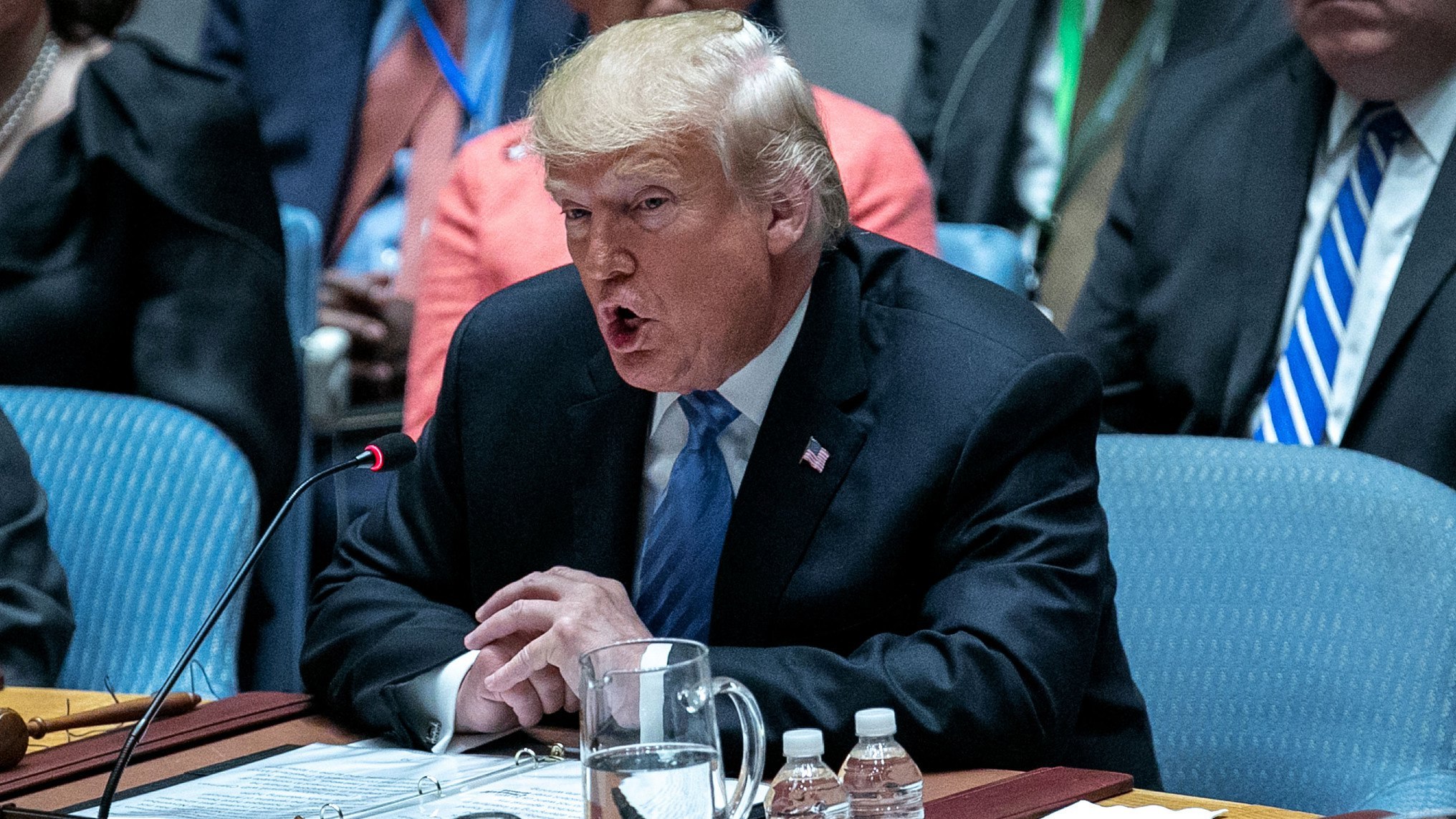
US President Donald Trump underscored his "America First" policies when he addressed world leaders at the UN General Assembly meeting in New York on September 25. He talked about trade and his ongoing dispute with China and other controversial global issues such as US relations with Iran.
On September 24, the Chinese government released a new white paper addressing the current trade dispute with the US, in which it reaffirmed its willingness to maintain a win-win trade relationship with America.
However, Trump's speech at the UN assembly was interpreted by many experts as an announcement of continuing his present policy.
"Trump will continue the fight," said Xu Qinduo, a senior fellow at the Pangoal Institution.
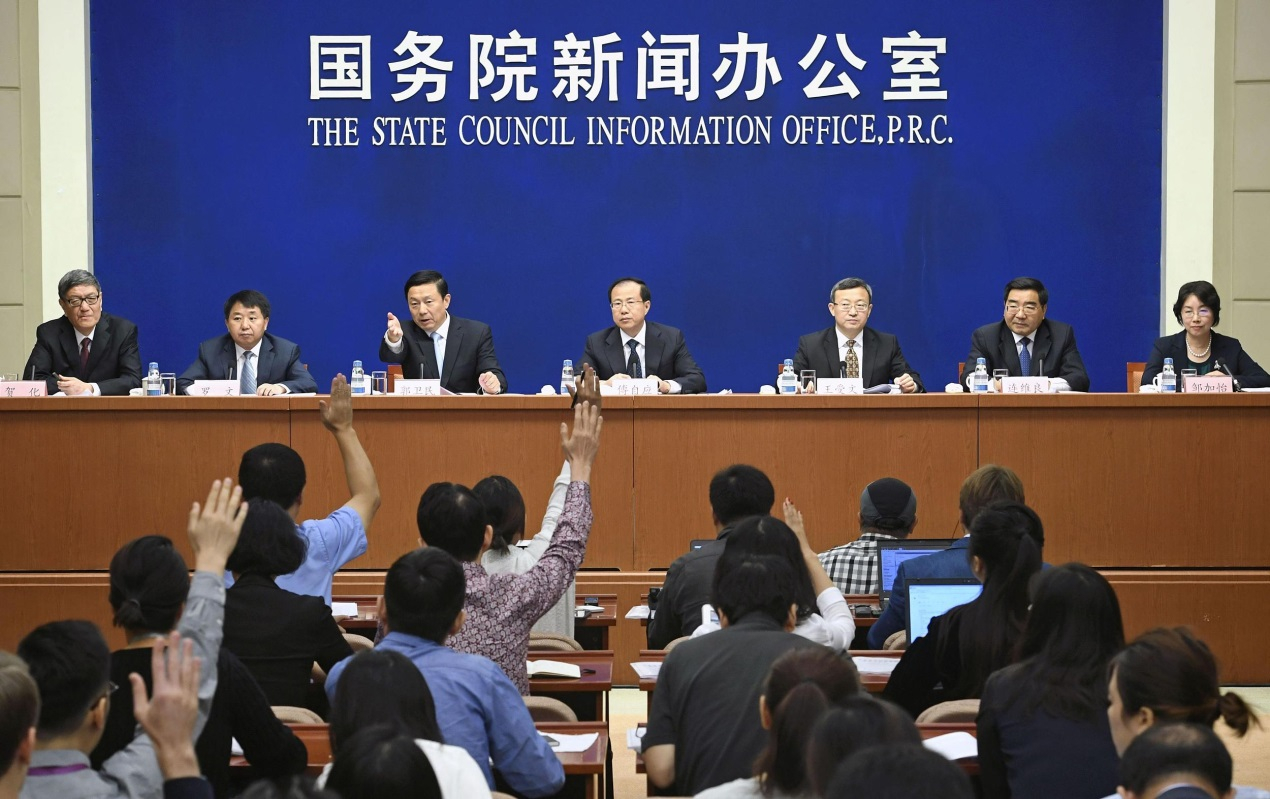
The Chinese State Council Information Office holds a press conference about the white paper titled "The Facts and China's Position on China-US Trade Friction" in Beijing, on September 25, 2018. /VCG Photo
The Chinese State Council Information Office holds a press conference about the white paper titled "The Facts and China's Position on China-US Trade Friction" in Beijing, on September 25, 2018. /VCG Photo
Trump also blamed the World Trade Organization (WTO) for allowing other countries, especially China, to take advantage of the US, saying that the US lost 3 million manufacturing jobs and 6,000 factories after China joined the WTO.
That statement has been largely dismantled by many economists, and criticisms of the US president focused on his misunderstanding of the present global trading system.
Pittsburgh, Pennsylvania, a typical city in the Rust Belt, is now embracing artificial intelligence (AI) in its steelmaking process. This will predictably lead to more layoffs of blue-collar workers, an outcome contradicting Trump's promises.
According to Sourabh Gupta, a senior fellow at the Institute for China-America Studies, many of the perceptions that Trump holds for trade and different industries are outdated.
"Trump still lives in the 80s and he had most of his core convictions of trade framed during that period," said Gupta. "He is carrying them through all this while, and trying to protect this sunset industry when other nations are thinking how to succeed in the 21st century."
01:03
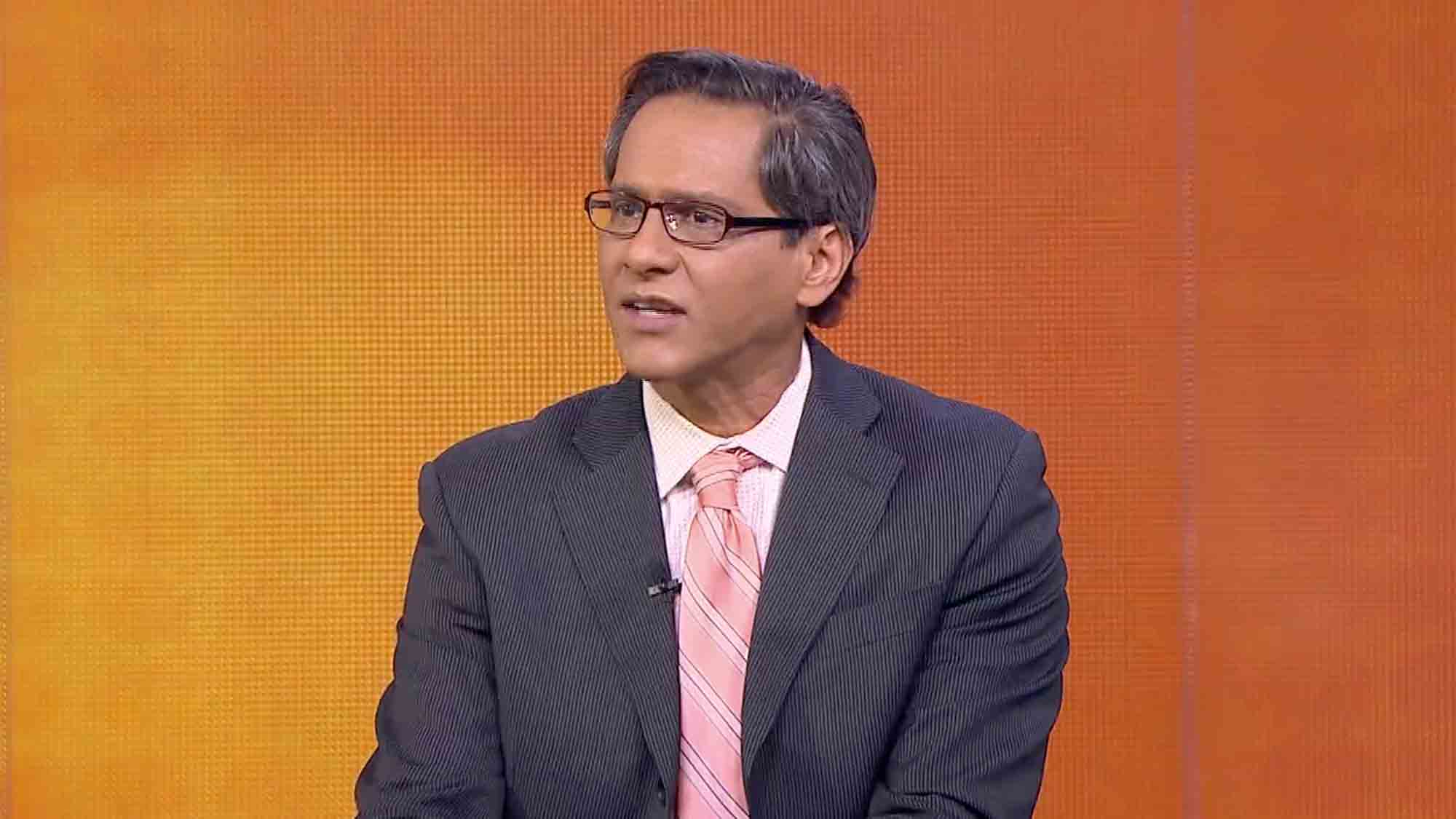
In his address to Iran, Trump was persistent in taking a hard line on the country and said that he has no intention of talking with Iranian President Hassan Rouhani. He then tweeted that he may meet with the president someday, and he is sure that Rouhani is an "absolutely lovely man."
These words and gestures provoked many Iranians. Alexander Azadgan, an Iranian analyst and a professor of Strategic Global Management and International Political Economy, fiercely opposed Trump's accusations against his country.
"A lot of his accusations, which are really beneath us, are what I amount to hate speech," said. Azadgan. "This is so-called psychology transference or projection, intended to create instability, chaos, and mayhem in the Middle East." Azadgan also criticized Brian Hook, the senior policy advisor to the secretary of state and special representative for Iran, about his "false accusations" against Iran when "the entire international community is looking at them invalid."
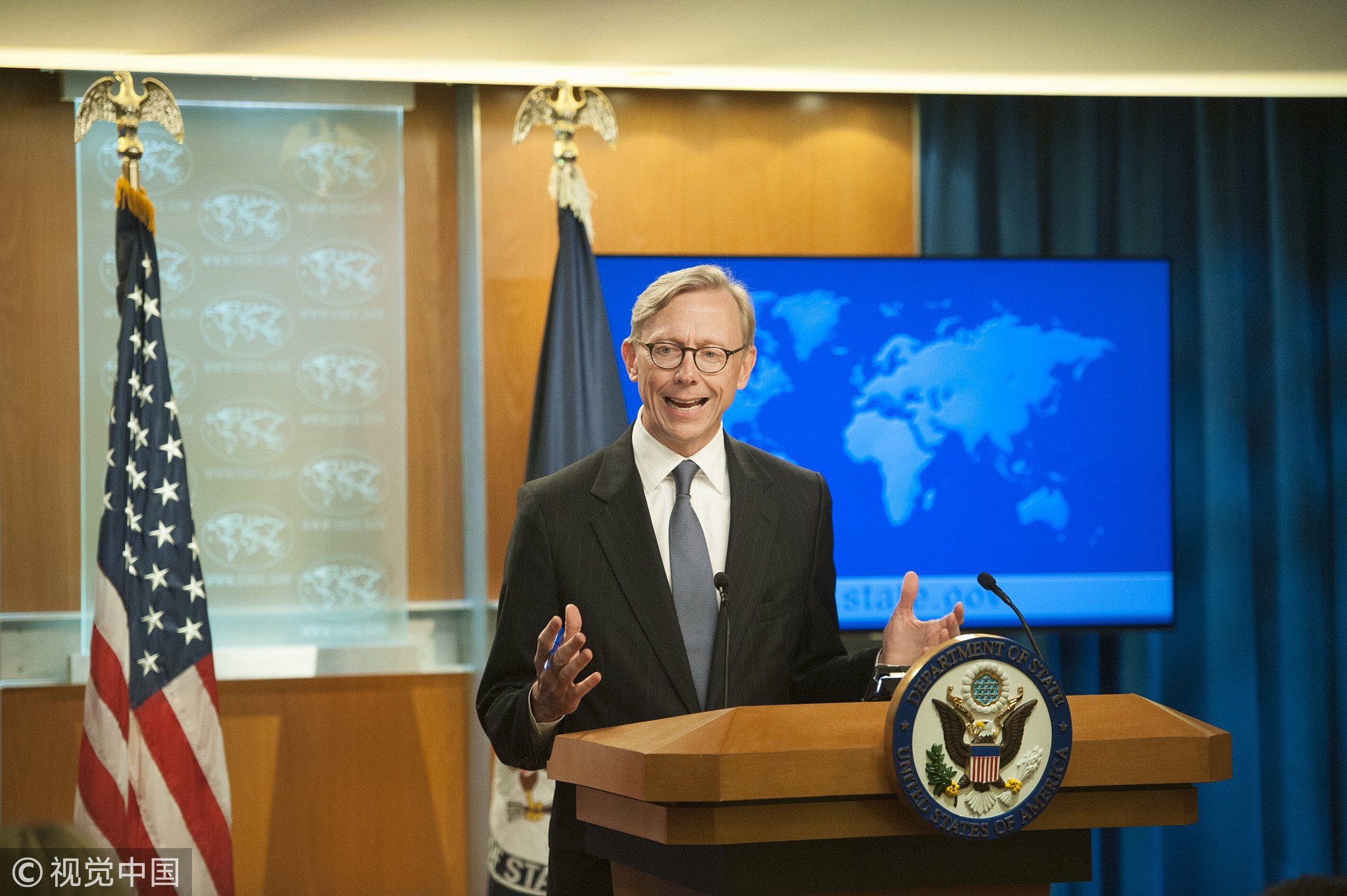
Director of Policy Planning Brian Hook fields questions from journalists during the announcement of the creation of the Iran Action Group at the Department of State in Washington, DC, on August 16, 2018. /VCG Photo.
Director of Policy Planning Brian Hook fields questions from journalists during the announcement of the creation of the Iran Action Group at the Department of State in Washington, DC, on August 16, 2018. /VCG Photo.
From his point of view, the root of the chaos in the Middle East is essentially the intervention of the US. He backed this view by saying that the US troops are "safer within the ISIS base," which is questionable.
"If anything, I believe the biggest state sponsor of terrorism is none other than the regime of Washington," said Azadgan, who avoided referring the nation as the United States. Trump's previous withdrawal from the Joint Comprehensive Plan of Action, or JCPOA, triggered a huge amount of criticism about his disrespect to the spirit of the law.
Hugh Dugan, a fellow and adjunct professor at the Center for United Nations and Global Governance Studies at Seton Hall University, said that the coming UN Security Council led by the US would be a good chance for a dialogue between the two nations.
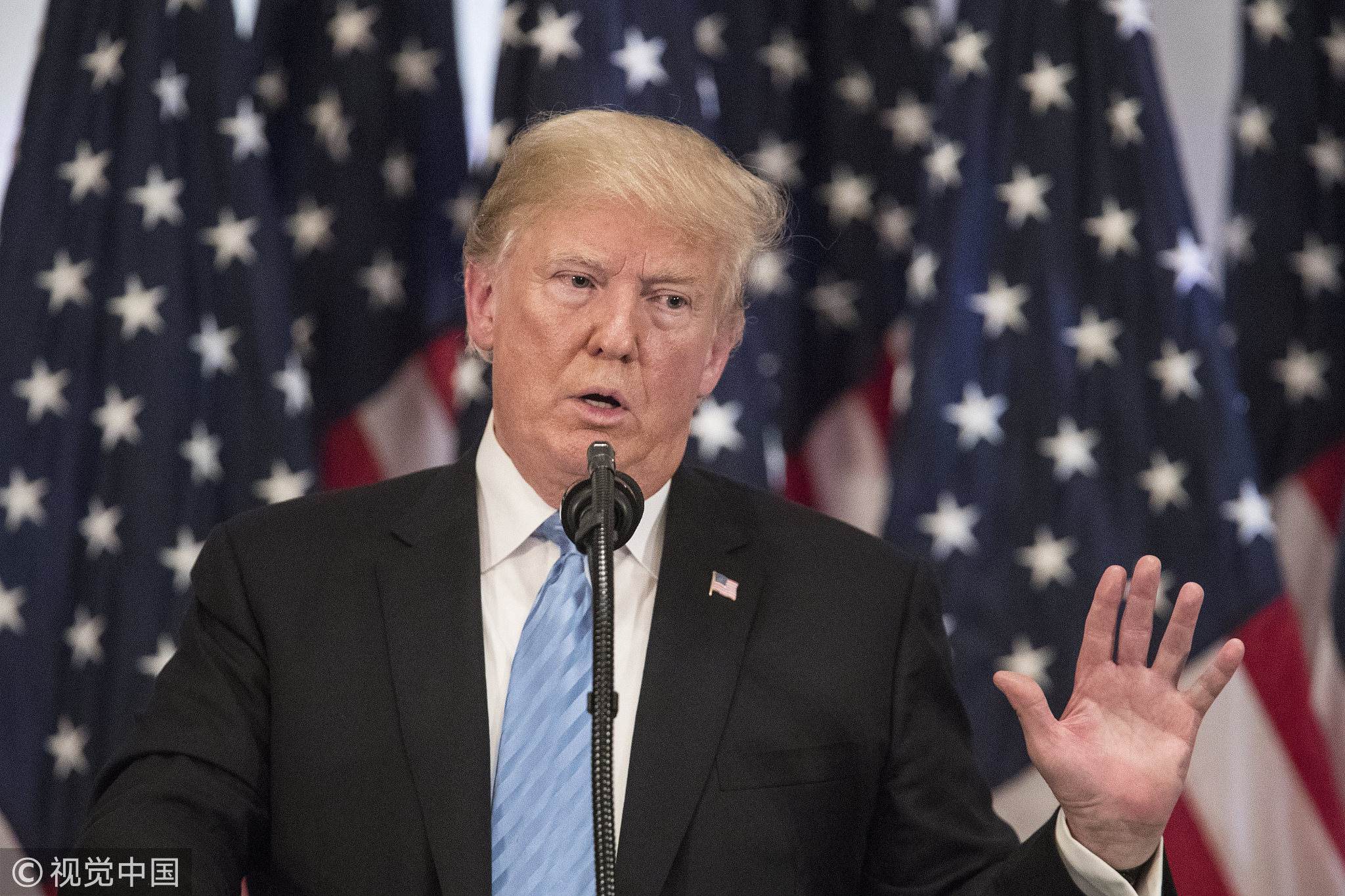
US President Donald Trump speaks during a news conference on the sidelines of the UN General Assembly in New York, on September 25, 2018. /VCG Photo.
US President Donald Trump speaks during a news conference on the sidelines of the UN General Assembly in New York, on September 25, 2018. /VCG Photo.
"The Iran deal is recognized by the UN Security Council resolution," said Gupta. "And now the US is going to punish other countries with secondary sanctions for observing international laws. This is controverting and abusing rule of law in the extreme."
Xu agreed with that view, adding that withdrawing from a deal consisting of joint efforts from major world powers, including Britain, Germany, France, China, and Russia, will definitely backfire. He warned that "America first may turn out to be America alone."
Trump's announcement regarding the denuclearization of the DPRK was equally controversial. For one thing, he didn't give any credit to China, a country that holds 90 percent of the DPRK's trade, for aligning with international sanctions. Also, he bluffed on his achievements in securing a deal with the DPRK when nothing substantial was on the ground.
"Nothing practical on the denuclearization of the Korea Peninsula has really taken place," said Azadgan." The people of the DPRK are not going to sit back and wait for the same destiny of Iran to fall on them."
The Heat with Anand Naidoo is a 30-minute political talk show on CGTN. It airs weekdays at 7:00 a.m. BJT and 7:00 p.m. Eastern in the United States.
(Cover: US President Donald Trump speaks during a United Nations Security Council briefing in New York, on September 25, 2018. /VCG Photo.)
(If you want to contribute and have specific expertise, please contact us at opinions@cgtn.com.)

SITEMAP
Copyright © 2018 CGTN. Beijing ICP prepared NO.16065310-3
Copyright © 2018 CGTN. Beijing ICP prepared NO.16065310-3